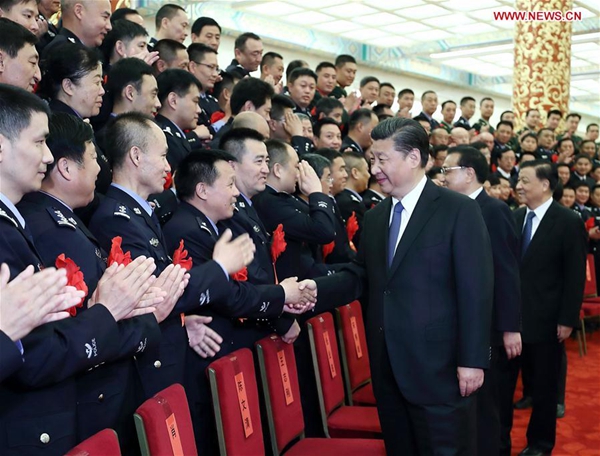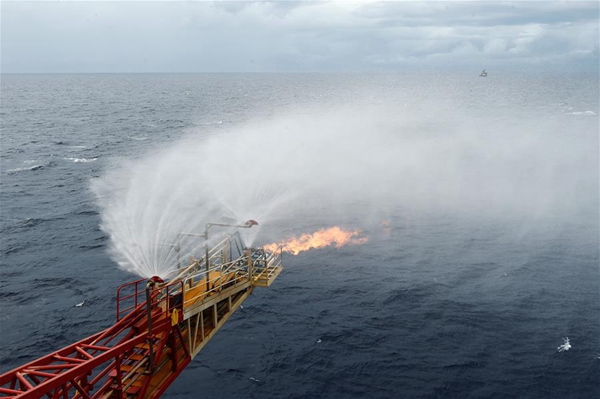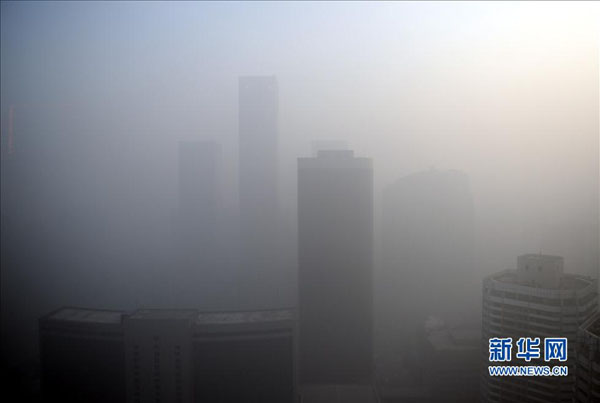BANKSY:
Malcolm Turnbull, our Prime Minister is in the area at the moment and is also I believe, on the phone. Good morning Prime Minister Malcolm Turnbull.
PINKY:
You’ll just have to pop him through.
PRIME MINISTER:
Good to be with you.
PINKY:
Hello!
BANKSY:
Good to be with you indeed. Now we’ve got several questions here that we want to pose to you, see if you can shed some light on things. But It hasn’t just come from us, we’ve got it from our listeners as well.
PINKY:
Yeah, first things first Malcolm, how do we know you’re not Laurence Moonie, pretending to be Malcolm Turnbull.
PRIME MINISTER:
Well I’ll just have to be convincing.
BANKSY:
I’m still not sure, listening to that voice.
PINKY:
We’re really pleased you’ve joined us this morning. Of course, you’re on the front page of our paper, The Bulletin saying you want to give CQ region a fair go.
BANKSY:
What do you mean by a fair go Prime Minister, in what way?
PRIME MINISTER:
Well what we’re talking about is the City Deals, the greater collaborations between the Federal Government, state Government and local government. One of the big changes I made as Prime Minister was to say that we should work as partners rather than the Federal Government just being an ATM. So you’ve seen, we’ve done this in Townsville, we have a City Deal there, and we’re working closely with the State Government and Local Government. Ewan Jones of course was a big driver, the former Federal Member. We have, we’re supporting the stadium there, the Townsville Eastern Access Rail Corridor, taking the train line out of the center of the city. Really, promoting the development of that city.
But it’s a different quality of engagement you know. As I said, the states and the local governments to some extend have essentially treated Canberra as an ATM. We’ve got to be better than that, we’ve got to be smarter, we’ve got to be more involved.
BANKSY:
So what you’re saying is you’re trying to put more money into this area so that we get a fair go with tall the money that we seem to give to the Government 24/7?
PRIME MINISTER:
But to be real partners. Of course you need partnership. One of the challenges that we have here in Rockhampton in particular, Michelle Landry and I were talking about this last night with people in the Hedrick’s Lane pub, we had a very good ‘politics in the pub’ evening –
PINKY:
Cool.
PRIME MINISTER:
Which was very –
BANKSY:
Mid strength?
PRIME MINISTER:
(Laughter)
Mid strength yeah, plenty of talking from my part, not a lot of drinking but yeah. Plenty of listening.
BANKSY:
Good.
PRIME MINISTER:
A lot of enthusiasm for that Rookwood Weir, and as I was saying to the Premier yesterday, we really urge the Queensland Government to get behind that. We have $130 million dollars on the table. The business case is being completed, it will stack up very well, we’ve no doubt about that. We should get on with it, because for a big water storage enhancement, it is a relatively low environmental impact, because it’s not like building a dam and flooding a whole valley, it’s backing the river up
BANKSY:
Yeah.
PRIME MINISTER:
I think it’s really worth supporting. That will provide, you know, water is water –
BANKSY:
Is life.
PRIME MINISTER:
Its good soil, it’s life and also money and jobs.
BANKSY:
Well look speaking of money and jobs and environmental impact, can I ask you about Adani?
PRIME MINISTER:
Yes.
BANKSY:
We’ve had a question come through from one of our listeners.
PINKY:
Yeah, a groundsman, he wants to know why we need Adani in Rockhampton.
BANKSY:
Are we looking at an economic boost here, or protection of the environmental impact? What’s a bigger priority for you Malcolm Turnbull?
PRIME MINISTER:
Well you’ve got to do both and I think the environmental argument – there are a number of environmental arguments put against Adani. All of the environmental tests and criteria have been approved now. So the project should be able to go ahead, subject to Mr Adani and his company satisfying –
BANKSY:
Without environmental impact?
PRIME MINISTER:
Yes, but can I just make this point to you? A lot of the protesters about Adani seem to either want Indians to go without electricity, or Queenslanders to go without jobs. We’ve got to be very clear about this. India is a poor country, it is growing rapidly, they need to quadruple their electricity production between now and 2033. Yes, they are doing a lot on renewables. They’re building a lot of solar. Adani has got the biggest solar plant in India. They’re building windmills, windfarms, and hydro. They’re going to need to import a lot more coal in absolute terms for many years. Coal will be, in 20-30 years time in India, coal will be a smaller percentage of their electricity mix than it is today, but they’ll still be importing more of it in absolute terms. Now if they don’t buy it from Queensland, they’ll buy if form somewhere else. It won’t be as clean coal, as it is from Queensland, it will be lower quality coal but the relevant thing is they’ll still be burning coal.
BANKSY:
So they’re gonna get it from somewhere, you would prefer them get it from us to increase our economic fortune?
PRIME MINISTER:
Sure. Well why would we want – I mean again, the protestors have got to ask themselves these two questions – are they saying Indians should go without electricity? Because I’ve been there with the Prime Minister and the Energy Minister. They want to reduce their emissions, their greenhouse gas emissions –
BANKSY:
Look I can assume, sorry Prime Minister –
PRIME MINISTER:
But they feel they have to burn more coal.
BANKSY:
I can only assume that the protestors are saying: ‘We don’t want them to go without, we don’t want our economic situation to fail – we just don’t want it to impact the environment in a way that is going to not benefit generations to come.’
PRIME MINISTER:
Well there are two questions there – there is the global environment and the local environment. In terms of the global environment I think I’ve addressed that – that’s the question of greenhouse gas emissions, India will progress to lower emissions but they’ve got to give people access to electricity rapidly and they feel, their considered judgement is they’re going to need to import more coal for some time yet so we may as well export it to them.
As far as the local environment is concerned, the impact on water and the Reef and all of those factors – that’s all been taken into account very carefully by the federal and state government environmental approvals.
BANKSY:
Right. Look, I just want to shift gears for a moment. We’ve had some more questions come through from our listeners. Parents returning to work – there is a big push by the government at the moment to get parents back into the workplace. What we want to know is why aren’t we supporting parents staying at home to be parents? Why are we pushing them back into the workplace?
PRIME MINISTER:
I wouldn’t say they’re being pushed into the workplace.
BANKSY:
You want more parents to return to the workforce though.
PRIME MINISTER:
What we want is – you’re talking about the ParentsNext announcement that we made here in Rockhampton with Michelle Landry yesterday.
BANKSY:
Yes, that’s the one.
PRIME MINISTER:
That is really about parents, typically young parents, typically single mums with small children who have often not completed school or have been disconnected with the work force, have lost their confidence – there is a risk that unless they get the support and the training and the encouragement they need, they could end up being on welfare for the rest of their lives. Now the best form of welfare is a job and it is important for those young parents, and I say they’re mostly mums, to be getting young mums to be getting that support. I met with some of them with Michelle yesterday here in Rockhampton and some great stories.
BANKSY:
And they want to get back into the work place?
PRIME MINISTER:
Well, yes, they want to be in a position to either get back into the workplace or finish school, get the skills, the training they need so that when the kids are older they can get back into-
BANKSY:
They have the skills.
PRIME MINISTER:
Their goal is to be either employed or employable.
PINKY:
Yes.
BANKSY:
Okay.
PRIME MINISTER:
And I think both of those are important objectives.
PINKY:
Well, it’s breaking a cycle there too so yeah it’s not all about pushing people away from being parents. Being a parent is not easy!
Hey Malcolm, I was wondering – look, I think you’re in great nick – I want to know how you keep fit? Having the most demanding job that you do – I’d like to know your tips? You’re clearly fitting it all in.
BANKSY:
This comes from the fittest member of the show this morning.
(Laughter)
PRIME MINISTER:
You’re very kind. Well, look, I exercise for at least, I would say, at least half an hour and probably on average three quarters of an hour, or an hour most days.
PINKY:
Wow, and what do you do?
PRIME MINISTER:
It depends where I am. I’ll either walk, I’ll use a rowing machine. If I’m with Lucy, if I’m in Sydney or if Lucy is down in Canberra we’ll often go for a long walk. I swim in the summer.
PINKY:
Oh yep.
PRIME MINISTER:
I paddle a kayak. Ride a bike occasionally. So, you know, I do a variety of things – you’ve gotta mix it up but the important thing is to keep moving. Exercise every day and get your sleep. That’s two good tips to be prime minister.
PINKY:
Yeah, I agree. And have you tried CrossFit yet?
(Laughter)
PRIME MINISTER:
CrossFit? No, I’m not sure-
PINKY:
Put that in your diary.
BANKSY:
What is this cross fit you speak of? (Laughter)
PINKY:
You might like, Malcolm, just to mix things up!
PRIME MINISTER:
Is this like a ‘Netflix and chill’ thing? (Laughter)
PINKY:
No it’s not that. (Laughter)
That’s another thing if you haven’t tried out – you should! No CrossFit is weight bearing so lots of weight lifting activities. It’s really cool.
PRIME MINISTER:
Oh yeah, okay.
BANKSY:
He’s got the weight of the nation on him right now Pinky! (Laughter)
PRIME MINISTER:
You know actually that’s a good reminder because I think I probably don’t do enough weights.
PINKY:
Yeah weights!
PRIME MINISTER:
I do some Pilates occasionally. Lucy is very keen on Pilates.
PINKY:
Oh yeah.
BANKSY:
There you go!
PRIME MINISTER:
I do some of that with her.
PINKY:
Keep your core strength strong.
BANKSY:
And all these things are better than eating a raw onion for health purposes I’ve got to say. (Laughter)
PINKY:
Of course.
BANKSY:
Prime Minister Malcolm Turnbull, we thank you for your time this morning. We know you’re very busy and heading around the regions and spreading the message of getting a fair go.
PRIME MINISTER:
Heading to Emerald yep. Okay, terrific, great to be with you.
BANKSY:
And we’d love to have a fair go here in Central Queensland as well. We appreciate your time, enjoy your visit.
PRIME MINISTER:
I will, thanks a lot.
[ENDS]


